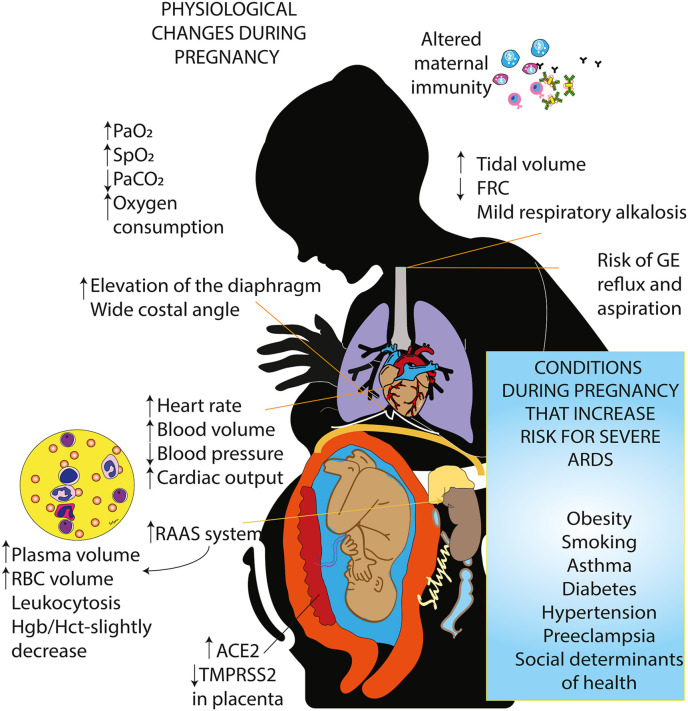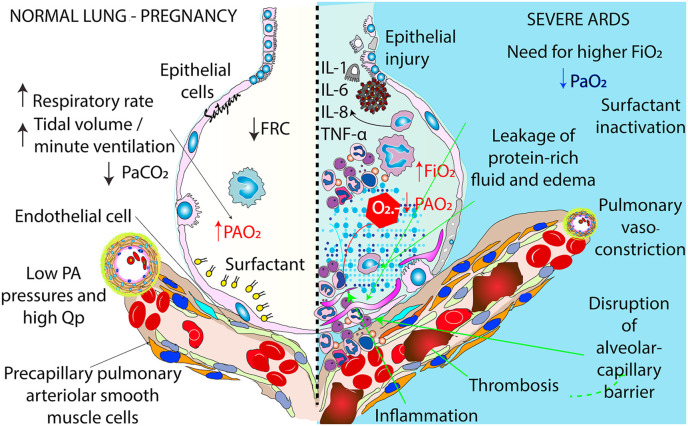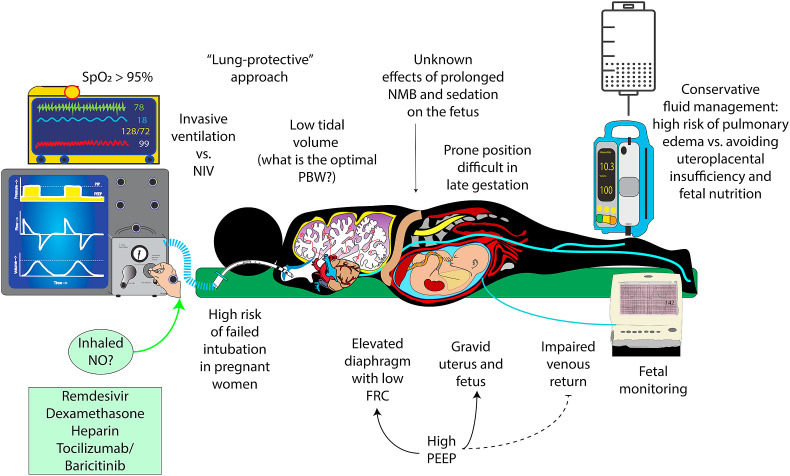Pregnancy-related acute respiratory distress syndrome (ARDS) is fast becoming a growing and clinically relevant subgroup of ARDS amidst global outbreaks of various viral respiratory pathogens that include H1N1-influenza, severe acute respiratory syndrome (SARS), middle east respiratory syndrome (MERS), and the most recent COVID-19 pandemic. Pregnancy is a risk factor for severe viral-induced ARDS and commonly associated with poor maternal and fetal outcomes including fetal growth-restriction, preterm birth, and spontaneous abortion. Physiologic changes of pregnancy further compounded by mechanical and immunologic alterations are theorized to impact the development of ARDS from viral pneumonia. The COVID-19 sub-phenotype of ARDS share overlapping molecular features of maternal pathogenicity of pregnancy with respect to immune-dysregulation and endothelial/microvascular injury (i.e., preeclampsia) that may in part explain a trend toward poor maternal and fetal outcomes seen with severe COVID-19 maternal infections. To date, current ARDS diagnostic criteria and treatment management fail to include and consider physiologic adaptations that are unique to maternal physiology of pregnancy and consideration of maternal-fetal interactions. Treatment focused on lung-protective ventilation strategies have been shown to improve clinical outcomes in adults with ARDS but may have adverse maternal-fetal interactions when applied in pregnancy-related ARDS. No specific pharmacotherapy has been identified to improve outcomes in pregnancy with ARDS. Adjunctive therapies aimed at immune-modulation and anti-viral treatment with COVID-19 infection during pregnancy have been reported but data in regard to its efficacy and safety is currently lacking.




